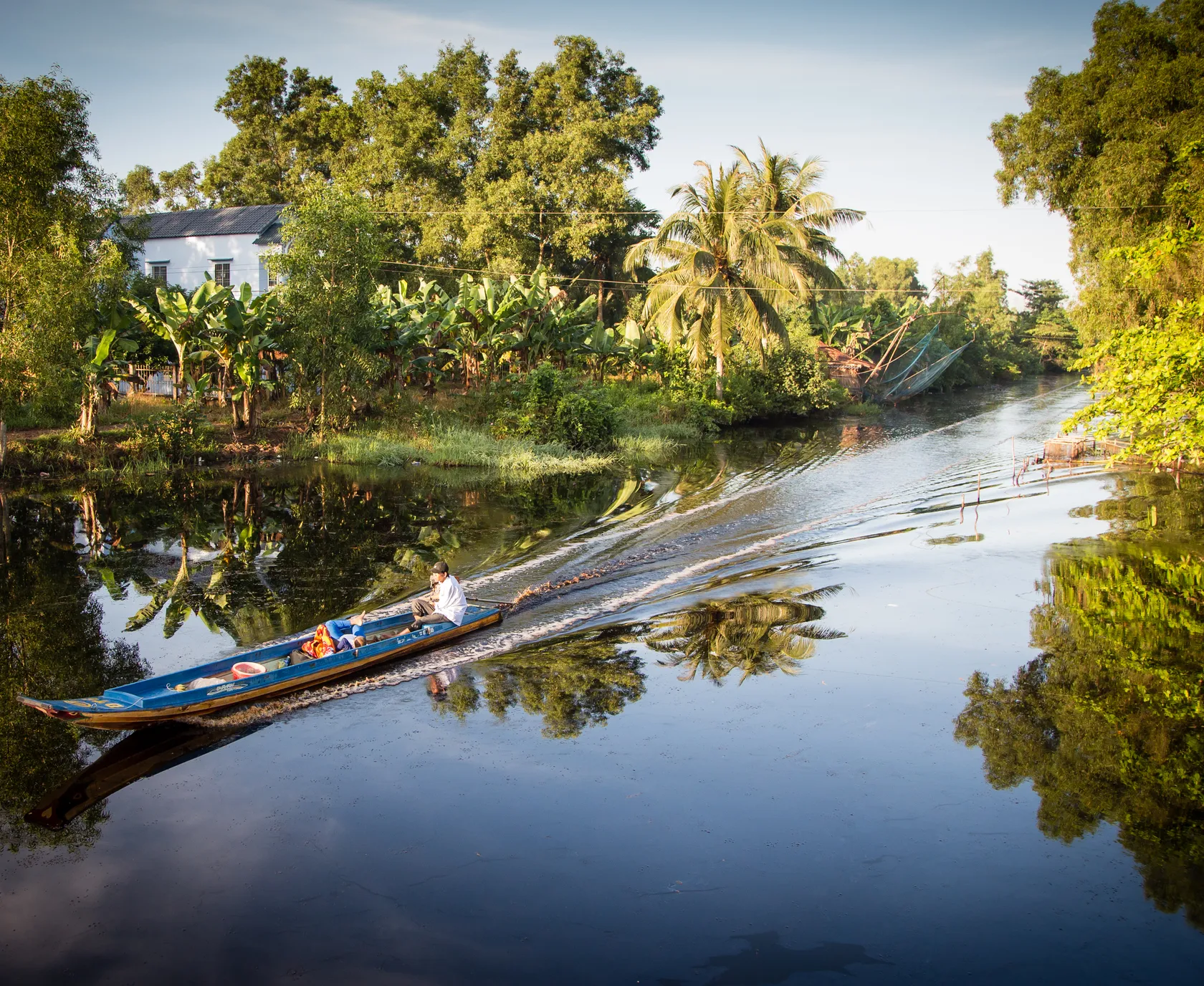
Climate adaptation and mitigation
The climate crisis is undermining our systems. Our goal is to accelerate action for the world’s most vulnerable people.
The climate crisis means that the world is unsafe, uncertain, and unpredictable for billions of people, and it threatens to reverse gains made in ending hunger and malnutrition. Unchecked, the UN estimates that the climate crisis could drive an additional 100 million people into poverty by 2030.
Climate change impacts the communities living in poverty dis-proportionally and exacerbates pre-existing inequalities, making communities more vulnerable. Adapting to changing weather patterns and extreme climate events has to be a top priority for the world’s lower middle-income countries in Africa and Asia.
Locally led, globally backed: Rethinking climate action
Progress on climate action means closing the gap between global commitments and local solutions that build lasting resilience.
A systematic global approach
The breakthrough in 2022 took place at the UNFCCC COP27 climate conference in agreeing to a Loss and Damage Fund for vulnerable countries as a response to those whose lives and livelihoods are ruined by the very worst impacts of climate change.
In addition to significant financial resources, we need to adopt a more systematic global approach to address the complexity of the climate crisis and create a more resilient future for all. That’s why we put marginalised communities and people living in poverty at the heart of our work.
Supporting climate justice
SNV is acting to address the climate crisis at pace, applying our strong foundations and technical expertise across all of our work. Extreme climate events destroy crops and livestock, and damage infrastructure. Water security is under threat. Better, cleaner, and more sustainable energy processes are crucial to livelihoods.
We place a strong emphasis on adapting to the impacts of the climate crisis. We aim to strengthen institutions, make markets inclusive, mobilise finance, and enable effective governance, reducing gender inequalities and barriers to social inclusion.
Take the BRILHO programme in Mozambique where SNV has helped deploy over 350,000 Solar Home Systems and mini-grid connections and over 250,000 Improved Cooking Solutions. This increased flow of resources has benefited three million people across all provinces of the country of whom 85% live in rural areas.
In all our work, we ensure a fully supported systems change approach in transforming the way food, energy, and water is produced, supplied, and consumed. We do this to meet global climate targets and ultimately enable sustainable and more equitable lives for all.
Local action for global impact
Learn more about how we collaborate with local communities to build climate-resilient food systems, enhance water security, and unlock climate finance for impactful, locally-led solutions.

Want to collaborate with us?
Contact our global climate team to collaborate and learn more about activities around the world.



